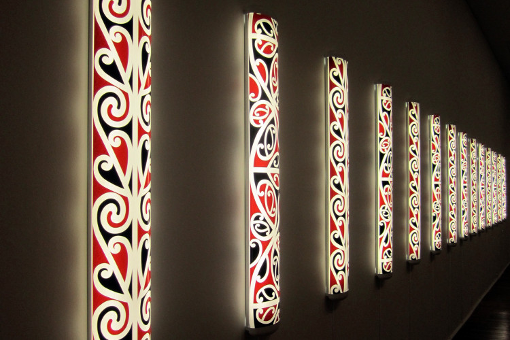Call for Articles and Creative Work to be published in a special volume on Surrealism with an emphasis on its activities and reception in German-speaking countries.
This volume on Surrealism is part of the book series Otago German Studies, edited by August Obermayer, Cecilia Novero and Peter Barton, University of Otago, Dunedin — New Zealand.
On the Series:
This book series was conceived and founded in 1980 by Dr August Obermayer who has also been editing it until the present day. Prof E. W. Herd joined in 1981 as co-editor and carried out this function until his death in 1997. The series has so far published 30 volumes. Dr Cecilia Novero became co-editor, in 2015. Dr Peter Barton joined the team, in 2017.
On the Editorial Board are Prof. Christian Grawe, Dr Norbert Griesmayer, Prof. Bernhard Greiner, Prof. Tim Mehigan, Prof. David Wellbery and Prof. Hansgerd Delbrück
CALL:
Otago German Studies is seeking contributions for a peer-reviewed volume to be published in February 2024 for the centennial of Surrealism. The volume is devoted to the notion of the OUTMODED in Surrealism.
When we speak of the “outmoded,” we intend it as art historian and critic Hal Foster once put it, namely as “the uncanny return of past states” such as the “repressed historical as well as psychic materials,” which Surrealism recovers and puts to “anarchic” use. As noted by Foster, following Walter Benjamin, “these recoveries are intended as a disruptive return but sometimes they intimate a transformative working-through too.” (Compulsive Beauty 157) Hence, in tackling the “outmoded” we are interested in its potential “revolutionary and collective charge” rather than the “parodic” or affirmative qualities the “outmoded” could also conceal.
On the one hand, our volume would like to return to the question of whether the Surrealists’ “outmoded” successfully functioned as a means to imagine alternative “modes of life” in their time, by playing “upon the tension between cultural objects and socio-economic forces, between mode as fashion and mode as means of production” (Ibid.).
On the other, and most important, the volume would also like to put this very question to Surrealism’s own practices of resistance and refusal (Surrealist Sabotage), including the “outmoded,” from our contemporary perspective. In other words, we would welcome scholarly as well as creative interpretations of how what appears outmoded in Surrealism itself from today’s perspective, in fact, irrupts with new momentum into our “rationalized” lives, and –as the “outmoded” for the Surrealists– might now have the power to disrupt our every day in uncanny ways. Foster argues that „artisanal relics“, „old images within bourgeois culture“, „outdated fashions“ and „outdated spaces“ are citations from capitalism that subtly attack „the socioeconomic complacency of its present moment“. If this is so, where might we today find collective forms of the ‚outmoded‘ such that they bear the power of the utopian and the nonsynchronous, without being redemptive or nostalgic?
We welcome essays or other creative work (photographic essays, poems, short stories, etc.) that deal with the “outmoded” both as a concept and an engagement with or an experience of space, objects, texts, myths, and images beyond the original surrealist use of the term are welcome. Please make explicit reference to the emergence and adoption of the “outmoded” within the Surrealist movement. In addition, we are particularly interested in contributions that may consider the “outmoded” and/or any of its interpretations in work by Surrealism-inspired authors/artists in the German-speaking world, whether active today or in the past.
Please submit your 300-500 word abstracts with 5 keywords by February 15, 2023 to:
Otago German Studies, attention of the Editors: cecilia.novero@otago.ac.nz; peter.barton@otago.ac.nz
Final contributions (5000-6500 words more or less, including works cited and footnotes) for peer-reviewing are due June 30th, 2023. Final versions following the peer review are due no later than November 1, 2023. The volume is scheduled to appear online in 2024. Online, peer-reviewed, open-access publication.
Research Seminar, Wednesday, September 21, Otago Polytechnic, 5:30-7:00 pm
Wednesday, September 21, 2022
Room F209, F Block, Otago Polytechnic, Forth Street, Dunedin: 5:30 pm – 7:00 pm
YOUNG GUNS RELOADED:
RE-EVALUATING THE CONTEMPORARY MĀORI ART OF THE 1990S
Ed Hanfling, Dunedin School of Art

Michael Parekowhai (Ngā Ariki Kaiputahi, Ngāti Whakarongo), The Bosom of Abraham, 1999 Screen printed vinyl on fluorescent light housings
Collection of the Dunedin Public Art Gallery
In 2001, Manuka Henare wrote: “Māori art is vitalistic in its expression of religion and philosophy, particularly where it is the intention of the artist to enhance vital potential. The art is said to be alive.” It is unlikely that he had in mind the work of the “Young Guns” – the artists who became identified with Contemporary Māori Art in the preceding decade, the 1990s. Shane Cotton, Jacqueline Fraser, Michael Parekowhai, Lisa Reihana and Peter Robinson enjoyed critical acclaim for work that was irreverent and referential, but also provoked debate about the extent to which their art could be seen as “Māori art” or consistent with the “vitalistic” basis of Te Ao Māori. This seminar considers the metaphysical dimensions of 1990s Contemporary Māori Art, activated through recontextualisation and reappraisal (as in the recent Auckland Art Gallery Toi o Tāmaki exhibition Toi Tū Toi Ora), while suggesting that there is value in holding on to the humour and calculated impropriety that initially gave the work its vitality.
Ed Hanfling is a prolific Pākehā critic, art historian, and curator who teaches at the DSA. His research focuses on judgement and value, modernist abstract art, and 20th-century art in Aotearoa New Zealand. Among his books are 250 Years of New Zealand Painting (co-authored, Bateman 2021) and texts on Milan Mrkusich and Ian Scott.

